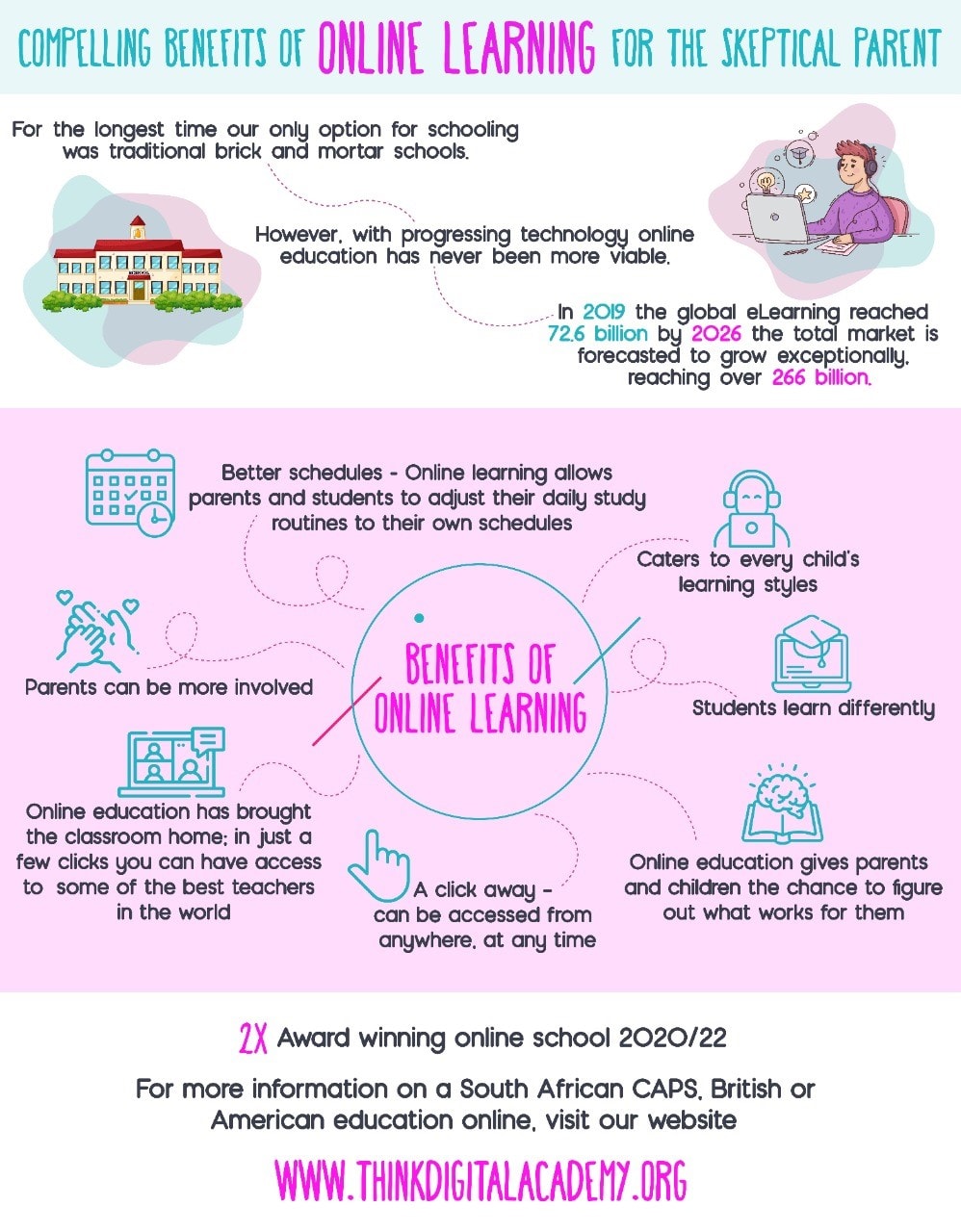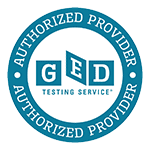With more parents increasingly making the switch from conventional schooling to online schooling for their children, we’re observing a massive transformation in the education sector across the globe, especially in South Africa. Following the COVID-19 pandemic, distance learning is becoming increasingly popular among students of all ages. By sending their children to a reputable online school, parents can tick many boxes — for example, safety, mental health, knowledge absorption and retention, flexibility, a healthy school-life routine, etc.
If you’re considering making the switch to an online school for your child, make sure you select the right education institution. Presently, parents have the option of choosing between many online schools in South Africa. Instead of taking a day or two to decide, we recommend digging deeper, doing extensive research, and shortlisting the best online schools for your child. This process is imperative. If you fail to do your research, you may end up selecting an education institution that isn’t right for your child. As a parent, you shouldn’t compromise on your child’s education under any circumstances.
We recommend browsing through reviews, consulting current parents with children attending the institution, staff of the institution, requesting more insight from academics you may know and making your own checklist. As you take the time to gather more knowledge, you’ll be able to make an informed decision that helps your child receive a quality education, secure top grades, become a curious and critical thinker and progress exceptionally well at school.
In this blog, we’ll help you create your own checklist. We’ll walk you through the critical questions you should keep in mind as you navigate the online school selection and finalisation process. Take notes or bookmark this blog so that you can keep referring to it as you search for the right online school for your child.
1. Is the student-teacher ratio low?
As a parent, make sure you look for an online school that has a low student-teacher ratio. If this ratio is high, your child will be taught in a group of 15+ students. Unfortunately, many online schools have an astonishingly high student-teacher ratio (15:1, 20:1, 25:1, or even 30:1).
At Think Digital Academy, we have resolved this problem by having the lessons pre-recorded and accessible at any time. In this way, the student need not rely on a certain time to participate or join in on a lesson, they are able to access all their lessons at any time. This also allows students to work at their own pace, and maximise their engagement and interactivity. This approach enables us to provide the best teaching methodologies, taught by subject matter experts, at all times. Students are then able to customise their learning schedules according to their unique learning habits.
Should students need some guidance with their school work or their schedule, our Student Success Coaches work assiduously and are ready and able to provide the customised guidance and support they need. Our Weekly Activity Reports, which are emailed to parents and tutors weekly, enable parents and tutors to track and closely monitor each student’s participation and engagement on our system.
They can immediately identify students who are losing focus and encourage them back into their learning routine if need be.
This strategy goes a long way in helping students learn actively, attentively, and retentively. As a result, they perform better on their tests and secure top results.
There’s little to no risk of the student falling behind in their lessons. Whether they’re struggling to understand certain concepts or simply zoning out, our Weekly Activity Reports expertly provide the individualised data they need to get back on track.
2. How qualified are the teachers?
As a parent, ensure you look into the qualifications of the teachers at your chosen education institution.
Your children shouldn’t be trusted with just anyone. Their online teachers should be experienced, qualified, trained, empathetic, passionate about teaching, as well as adept at teaching. At Think Digital Academy, our Master’s (MA) / Doctorate (PhD) degree, Head of Department (HoD) qualified subject specialist teachers have worked with dedication and great care to provide a high quality education to all our students. They have extensive experience in teaching and have meticulously mastered the “art of teaching” over the years.
We have a rigorous faculty recruitment process in place. Each prospective teacher is interviewed by a team of education specialists, senior teachers, academics and learning experts. We also request the shortlisted teachers to demonstrate their teaching skills, so we can determine whether they’re the right fit for our online school. By hiring the most experienced and accomplished MA/PhD/HoD qualified subject specialist teachers, we ensure that all our students are in excellent hands and are being taught by the best teachers.
3. Do they have a well-rounded, certified curriculum?
Today, many online schools follow the national curriculum, which is subject to political turbulence. In essence, it doesn’t provide children with the comprehensive education they need to grow academically and secure top results.
As you look for the right online school for your child, ensure that you select an education institution that offers a well-rounded, independent curriculum. At Think Digital Academy, our curriculum comprises the best aspects of the national curriculum as well as new facets that help children achieve an academic edge. By introducing additional elements, we make up for the gaps in the national curriculum by providing additional resources.
Think Digital Academy offers three different curricula. They are the South African CAPS curriculum which prepares children for the NSC examination, the British International curriculum which prepares students for the external British International Examinations and the American GED curriculum which prepares students for the GED exams.
4. How do they keep children engaged in the lessons?
When making the switch from conventional schooling to online schooling, parents often worry that their children will struggle to remain focused and disciplined enough to see their academic year though. This is a justified fear.
At Think Digital Academy, we have a meticulous system in place to eliminate the risk of students potentially getting distracted, zoning out or simply not completing their prescribed lessons and/or tasks. Our teachers are provided with extensive training prior to recording their lessons to keep students engrossed in their lessons. We equip them with the insights, tips and improvisation techniques they need to know in order to help the students stay focused, attentive and immersed in the lessons.
We understand that students can easily get distracted and veer off track, especially younger children with shorter attention spans, which is why we’ve included videos, sound tracks, strong visuals and interactive quizzes to keep our students interested and engaged.
5. How much experience do they have?
In light of the COVID-19 pandemic, a plethora of new online schools have been set up. Unfortunately, many of these institutions have been established with the intention of “jumping on the online schooling bandwagon.” In other words, they don’t provide the quality of education parents are looking for.
If you’re considering sending your child to a reputable online school, select an institution that had been set up long before the pandemic started. This is a great way to ensure that your chosen online school isn’t “following a trend” but actually has an exceptional track record and extensive experience. And, had begun the education journey with the right intentions.
Established in January 2017, Think Digital Academy has five years of experience and counting. We’re one of the pioneers of online schooling in South Africa, as we were South Africa’s first online school. Our experience has enabled us to improve the quality of education we provide. Think Digital Academy is proud to include that we have won the prestigious award of “Best Online School in South Africa” for two years in a row. It’s no secret that we’re South Africa’s favourite online school.
Over the years, we’ve built a strong faculty and perfected our curriculum, which is further updated and improved upon based on new requirements. Today, we’re trusted by thousands of parents across the globe, not just in South Africa.
6. Will my child be able to enjoy a balanced school-life schedule?
Among the many benefits online schooling has to offer, a healthy and balanced school-life schedule stands out. Unfortunately, this isn’t a given. Many online schools are strictly focused on academic growth, which ends up affecting children’s personal growth and social development. At Think Digital Academy, we have a razor-sharp focus on academics. However, we also take other aspects of your child’s learning journey into account. By allowing a self-paced but guided curriculum, it allows you as a parent to ensure that your child has sufficient time to explore their hobbies, engage in sports, play skill-building games, socialise with their friends, embark on new adventures, discover their passions and interests and partake in character-building activities. We encourage all our students to join private sporting and cultural clubs.
We structure our lessons in a way that students get the opportunity to learn at their own pace, and still follow a guideline of what to complete within one academic year, which enables them to grow and evolve academically. As a parent, you can easily create a schedule that helps your child reap the benefits of a balanced and enriching school-life schedule. Ultimately, this approach improves student mental health and prevents burnout in children.
7. Can my child receive a higher education at the same institution?
Many online schools exclusively teach younger students, not older students. Avoid selecting such an institution. The transition from conventional school to online school is undoubtedly difficult, but the transition from one online school to another online school is just as challenging. As you switch schools multiple times, your child will have to start over again and again, which can take a toll on them.
We recommend selecting an online school that provides a quality education across multiple grades. This is a great way to help your child progress from one academic stage to another without being forced to switch schools.
At Think Digital Academy, we provide a quality education across two curricula; South African and British International for Grades R – 12 and Stages R – AS Levels. The CAPS curriculum is also available in Afrikaans for Afrikaans Home Language speakers.
If you enrol your child in Pre School at the age of 6, you can rest assured that they can progress to Primary, Intermediate and High School in the same institution. In other words, you can reduce the risk of upheaval by providing your child a consistent education between the ages of 8 and 18.
8. Do they offer quality online educational resources?
As you continue to dig deeper, we recommend checking whether the online schools you’ve shortlisted offer quality online educational resources. At Think Digital Academy, we provide a vast online library of resources, including educational study notes, past papers for Grades 10-12 and IGCSE / AS levels, memos and worksheets. As a parent, you can make the most of these resources by going over them with your child to help them revise towards the end of the term.
9. Do they prioritise mental health among children?
Student mental health is extremely important. It shouldn’t be disregarded or shoved under the rug. Our Student Success Coaches and Online Tutors, are understanding of various situations and provide individualised support and guidance to each student.
We offer support to ensure each child becomes a happy and successful achiever. By prioritising their mental health, we help children feel good about their learning experience.
Free trial
To make your choice even easier, why not enrol for our free 14 day trial to explore our e-learning environment.





